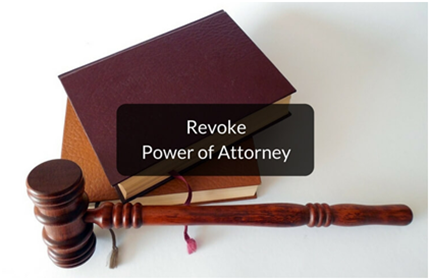With a power of attorney, a great deal of power is at stake. For one, you may be unable to decide on some aspects of life by yourself. This is true, especially when you become incapacitated in any way. From finances, estate planning to medical care, the attorney-in-fact will act on your behalf.
But a time usually comes when you have to revoke these powers. And this may come due to many reasons. Your current situation may have changed; meaning can take care of yourself. Life also happens, and several things may change along the way. Even if you don’t trust your agent or prefer another person, you can make the changes.
However, taking power of attorney away from someone doesn’t happen overnight. You must follow some guidelines and procedures to ensure its ultimate success. For example, you may want to submit the correct paperwork to the court. Plus, you can contact your family attorney to guide you as deserved. Below are some of the steps you should follow.

|
RevocationRevoking the current power of attorney is the first step in the success of this process. The revocation should be formal and written with clear reasons for the move indicated. It is also an excellent idea to sign and notarize the cancelation. Serve your current power of attorney with a copy of the revocations. It would be best if you also destroyed the revoked powers such that no one else uses them. |
Inform Power of Attorney
The next step is informing the attorney-in-fact. You don’t want to call or send an email; ensure you do so in writing. Send a copy of the revocation to the agent and follow up to ensure the letter is received. The notification should inform the agent of your moves and decision. Crucial on the list is that you withdraw his powers to act on your behalf or choose someone else. To make it even better, ensure the agent returns the copies to you.
Let the Related Third Parties be Aware
Power of attorney usually includes several actors. And other third parties pertinent in your life must be aware of the changes. So, ensure that you inform these parties of your intended move, whether it is a financial institution, health care professionals, or any party. Have the parties do the necessary by destroying the current power of attorney. That is not all; they should prove this to ensure no one else still uses a power of attorney.
Implement New Power of Attorney
Now that you have decided to take power of attorney from someone, another person takes over. And the completion of a successful transition in this process calls for the execution of a new agent. Of course, when you chose to make the changes, you had your reasons. That is why you should only choose an agent who will live up to your ideas and preferences.
When everything is in order, give your new attorney-in-fact the authority to help you. Even if it is on issues vital to you like health and finances. Finally, if you as the grantor don’t feel all advantages ought to be taken out, you may decide otherwise. In any case, rather than repudiating the POA, you can demand to be designated as the central agent. This restricts POA advantages to the extent that the agent can’t get any benefit from the grantor.
Final Thoughts
There are many reasons why people may want to cancel or change their power of attorney. Indeed, you may have endless questions on how to cancel a power of attorney from someone. And that is where the expertise of an attorney will come in handy. So, make it a point to speak to your attorney to guide you whenever necessary. Hope you have got the answer now for – how to take power of attorney away from someone.
If you are in need of a power of attorney form, visit our legal forms section. We are a reputed online platform with the most reliable legal forms and information you may need.